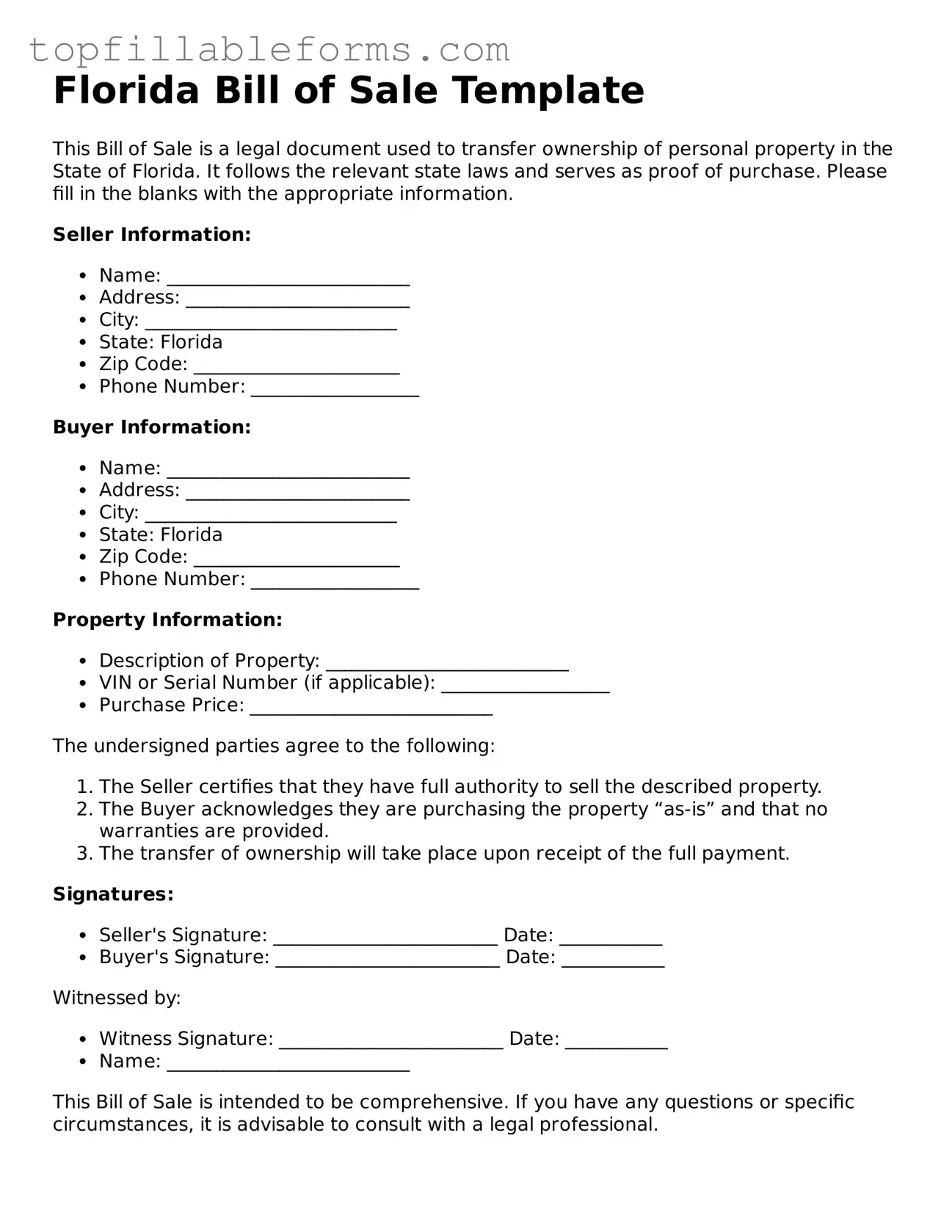Attorney-Verified Bill of Sale Template for Florida
The Florida Bill of Sale form is a legal document that records the transfer of ownership of personal property from one party to another. This form serves as proof of the transaction and outlines important details about the item being sold, the seller, and the buyer. Understanding this form is essential for anyone involved in buying or selling goods in Florida.
Open Bill of Sale Editor Here

Attorney-Verified Bill of Sale Template for Florida
Open Bill of Sale Editor Here
Finish the form now and be done
Finish your Bill of Sale online by editing, saving, and downloading fast.
Open Bill of Sale Editor Here
or
▼ PDF File
